Strengthening the Mental Health and Responsiveness of Caregivers to Young Children
REPSSI Mozambique's Strengthening the Mental Health and Responsiveness of Caregivers to Young Children Phase 2 project, funded by the Conrad Hilton Foundation. This project is cureently being implemented in Nampula (Angoche and Mogovolas districts) and Gaza (Limpopo and Bilene districts) provinces in Mozambique. The project aims to address mental health and psychosocial issues affecting adolescent and young mothers (15-25 years) and their children, including stress, depression, trauma, and limited access to mental health services among others. The intervention focuses on improving caregiving skills, mental well-being, and responsiveness to children. Implementing partners include Associação Ovarelelana, Associação Niwanane, Kuvumbana Associação, and Associação para o Desenvolvimento da Mulher, Criança e Jovem.
OUR PROGRAMMING
Our programming focuses on improving the mental health and psychosocial well-being of adolescent and young mothers aged 15-25 years and their children. It aims to enhance caregiving skills, reduce stress, and improve access to social and health services. The project’s goal is to support young mothers in overcoming psychological distress and improving their responsiveness to their children's needs. Key objectives include enhancing caregiving knowledge, strengthening local support systems, and improving multisectoral coordination for better maternal and child well-being.

Project Goals:

Capacity building
The Strengthening the Mental Health and Responsiveness of Caregivers to Young Children project prioritizes capacity building by providing training to Community-Based Organizations (CBOs), social and health workers, and other local partners. The training focuses on enhancing knowledge and skills related to mental health, psychosocial support, and stress management for adolescent and young mothers. By strengthening the capacity of these groups, the project ensures they are equipped to offer effective support, improving the mental health and well-being of young mothers and their children. This builds a sustainable, community-based response to the mental health needs of vulnerable families.
Intervention
The Strengthening the Mental Health and Responsiveness of Caregivers to Young Children project has had a profound impact on adolescent and young mothers, improving their mental health, caregiving skills, and overall well-being. The intervention equips Community-Based Organizations (CBOs), social workers, and health professionals with essential training, enabling them to offer comprehensive psychosocial support to young mothers. These organizations deliver knowledge on stress management, positive discipline, and early childhood development, empowering mothers to care for their children more effectively.
One adolescent caregiver shared, “Before the program, I felt overwhelmed and didn’t know how to handle my stress. Now, I understand how to manage my feelings and communicate better with my baby.”
Another said, “The support I received helped me see that I am not alone. I feel stronger and more confident in my role as a mother.”
What we are learning
As the Strengthening the Mental Health and Responsiveness of Caregivers to Young Children project is implemented in Mozambique, valuable lessons are emerging. It has become clear that enhancing the capacity of Community-Based Organizations (CBOs) and social and health workers is crucial for providing effective mental health and psychosocial support to adolescent and young mothers. Additionally, the importance of building trust and creating safe spaces for mothers to share their experiences is evident. Feedback indicates that when caregivers receive tailored support, they are better able to manage stress, improve caregiving, and enhance their mental health, which positively impacts their children’s development.
Monitoring and evaluation
Monitoring and evaluation of the Strengthening the Mental Health and Responsiveness of Caregivers to Young Children project focus on tracking improvements in mental health, caregiving skills, and well-being among adolescent mothers. Regular assessments measure the effectiveness of training, support services, and the overall impact on mothers’ stress management and child development outcomes.
